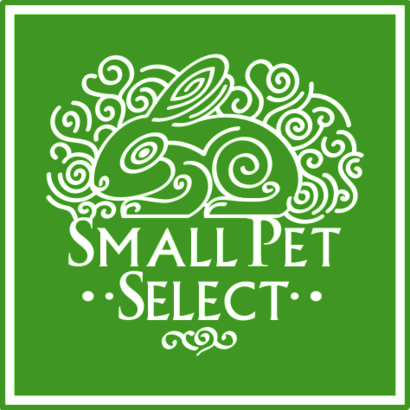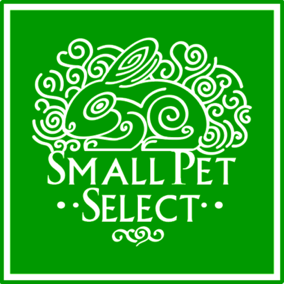Balanced diets are… just… better.
Guinea pigs are smart, active (some) and so full of mischief. (But mischievous cavies are so lovable… are we right?) Caring for a guinea pig requires the right guinea pig supplies, like a variety of food for a balanced diet. So that means it’s super important to buy high-quality Timothy hay based pelleted guinea pig food if you choose to supplement your piggy’s diet with pellets. Guinea pig pellets are great for a little extra nutrition.
And we’ve got the perfect option for cavies that will keep ‘em happy, healthy and fit. A guinea pig’s diet is all about balance. So shop balance and buy balance; give your cavy a wonderful life with our awesome food. Direct to your door at the click of a button. Our quality won’t be outdone. 100% satisfaction guaranteed. Try it. You won’t regret it.
GUINEA PIGS AND VITAMIN C DEFICIENCY
Guinea pigs and primates, like us, are unable to make their own vitamin C. Because their bodies can’t synthesize or store it, they need to receive around 10-30 mg per day through their diet. Guinea pigs that don’t get enough vitamin C are at risk for scurvy, even when deprived for as little as two weeks.
A proper diet is really all that’s needed to meet the daily vitamin C requirement for most guinea pigs. But... what actually is a proper guinea pig diet? Well, to break it down, approximately 80% of your guinea pig’s diet should be a high-quality hay. Your guinea pig should have constant access to fresh hay. Always. At all times. 15% greens, 4% pellets and 1% treats should make up the other 20% of the diet. Although pellets aren’t 100% necessary, if your cavy isn’t getting the recommended daily dose of the magical vitamin C via fresh veggies, you’ll need to find another way to supplement. And pellets are definitely an option.
WHAT TO KNOW ABOUT PELLETED GUINEA PIG FOOD
Talk about information overload when it comes to guinea pig food; there are tons of brands available on the market. But unfortunately, many of them aren’t safe for your piggy. The majority of cheaper brands are super flashy… they may look nice and taste good to your guinea pig, but stay away. Far, far away. These “junk food” pellets are packed with fattening, choke-hazard ingredients.
The best guinea pig food is a bag full of pellets. Just that. No seeds, no nuts, no fruit bits, no colorful flakes. Just pellets. If you give your guinea pig the option of junk food or food with nutritional value, they’re probably going to go for the junk. (Naughty little stinkers.) But, as pet owners, that’s what we’re here for… when it comes to your guinea pig’s diet, be the parent, not the friend.
Small Pet Select guinea pig food pellets are made in small batches and packed by hand. Only the finest ingredients are used, including our premium timothy hay. It’s super green and smells fantastic. Your piggy will agree.
HOW TO CHOOSE THE CORRECT GUINEA PIG FOOD
If you choose to feed pellets, make sure they’re high-quality, timothy-based (fortified with essential vitamins and minerals, including vitamin C). Guinea pigs need these essential vitamins and minerals to stay healthy.
FITTING PELLETED FOOD INTO YOUR PIGGY’S DAILY DIET
How Much Pelleted Guinea Pig Food Should I Serve?
While unlimited grass hay is the majority of what your guinea pig should be eating, a high-quality pelletwith stabilized vitamin C is an easy way to guarantee your guinea pig is getting a balanced diet. Just 1/8 cup per guinea pig per day should do the trick, although most won’t overeat as long as hay is always available.
Don’t Forget The Hay!
The majority of a guinea pig’s diet should be hay; they need lots of it, and they need constant access to it. We talked about pellets being optional. And they are… thinking they’re not isn’t reality. If your cavy has enough forage and greens, pellets aren’t necessary. A guinea pig should eat about three ounces per day, about six pounds per month. But, while the bulk of diet should be guinea pig hay, we should also feed our pig lots of leafy greens and veggies to make sure they’re getting those micronutrients. They need those too.
…And Of Course, Fresh Water
This seems like a no-brainer, but it’s always a good reminder. Guinea pigs should never ever ever ever go without fresh water. Access to fresh water in a suspension bottle is a must. Their lives depend on it.
Adding in Fresh Veggies
While the bulk of diet should be guinea pig hay, we should also feed our pig lots of fresh veggies to make sure they’re getting those micronutrients... they need those too. Fresh veggies are a fun way to add variety to the diet and make sure your guinea pig is getting all the vitamin C they need. All veggies aren’t created equal, though. Bell peppers are a great everyday food for guinea pigs. Rotate colors to switch things up. Fun, right? Everyone loves a new taste and a little color pop. A few slices is all they’ll need. Bell peppers are packed with vitamin C, but still low in calcium, sugar, and acid. And that’s a good thing.
Remember, some fruits and veggies high in Vitamin C come with a catch. Parsley, for example, is too high in calcium to feed daily or in large amounts. And oranges juice their vitamin C reputation for all it’s worth, but are a bit too high in sugar and acid to compete with bell peppers.
When you’re shopping for guinea pig supplies, there’s a lot of conflicting information: what’s safe, what’s not, what’s healthy, what’s not, what’s good-quality, what’s not… and you get the picture. When it comes to guinea pig food, we totally understand how easy it is to become confused. Most brick-and-mortar pet stores do NOT carry quality guinea pig food and guinea pig hay that your pet requires. And that they deserve, too. So please… source the highest-quality food possible.
Avoid pet store pellet mixes, treats and foods that have fillers, artificial colors, seeds, sugars, and pesticides. Yuck! Rather, provide natural, timothy-based pellets, tons of fresh quality hay and fresh veggies.
Your pet’s life depends on their diet. Don’t be overwhelmed with all of the options. Keep it simple when it comes to guinea pig food. And remember, if you’re wondering which pelleted guinea pig food to consider, skip the flashy bag full of colorful flakes and go for nutrition. Your piggy will thank you.












